The Bells of Times Square Read online
Page 4
“Where’s the bloody bulldogs?” Captain Thompson snarled. “What’s the good of having planes out with guns if they can’t shoot that bloody lot out of the fucking sky?”
Nate wisely didn’t answer. He changed the film in his camera in tense silence, putting the canister in the cargo pocket of his flight suit and readying the camera for Stuttgart on faith.
They didn’t make it.
The Messerschmitt Bf 110 was a superlative night fighter, and Miss Mossy, who was fitted out with cameras all around, had no guns. Her cooling system had been modified to keep the cameras and the pilots from freezing during the high-altitude missions, and when pushed too hard, her engines tended to get hot. Even while Nate despised Captain Albert, he knew the man was flying a fine line between outrunning the enemy and cooking their engines with speed.
Their one hope was that the call for backup would be answered and some dogfighters would appear over the horizon around them.
Nate kept lookout, and when the first bursts of fire spurted from the newly appeared specks behind them, acute relief almost stopped his voice.
“Friendlies!”
“Brilliant. We might not die up here.”
“I am not overwhelmed with optimism,” Nate muttered, but either Thompson’s voice was lost in the engine noise or he didn’t deign to answer.
Below, the various lumps and smokestacks of Stuttgart appeared. Very few lights—all sides had learned the trick of the blackout to confuse bombing raids—but Nate had flown over and taken pictures before. He knew the shape, the basic landmarks—and although he knew their support was behind them and if they couldn’t outrun the Messerschmitts before the bulldogs got there they were in real trouble, for some reason the city gave him comfort. It wasn’t featureless, wasn’t blank. He recognized the landscape, and they weren’t lost.
And just as he figured it out, tracers of antiaircraft fire passed to his right, shattering his peace.
“They’re closing in!”
“Not them! It’s another group! Hang on and spot the bastards!”
Calmly, Nate placed his camera and lens in the case and buckled it shut, using his stomach muscles and thighs to keep his seat as the plane began a series of vicious evasive maneuvers that might have made his stomach rebel when he’d first started to fly. When the camera was safely stowed, he grabbed hold of the grips on either side and did what Captain Thompson had ordered: held on and spotted.
“Three o’clock, Cap. Two planes closing.”
“Dive roll. Don’t puke.”
“They’re following, following—lost them. Not puking.”
“Don’t be a bloody arse! Fire from six o’clock. G roll.”
Oh hell. The negative-G rolls—Captain Thompson’s specialty—were Nate’s least favorite aerobatic. He held on and didn’t puke—his first time up in the cockpit, he had puked, and had to live in it for hours. Never again.
“Nine o’clock, Cap—friendlies.”
“Fucking firing! Blast it and bugger God’s arse!”
The blasphemy didn’t faze Nate, but the fact that they were stuck between friendly fire and enemy fire without guns themselves was starting to wear on his hard-earned calm.
“Evade, Captain. Friendlies engaging!”
“I am evading, you stupid kike. Shut the fuck up and let me work!”
Oy! Now they get to the bottom of Captain Albert’s hostility? “For heaven’s sake,” Nate muttered, but Thompson let out another round of cursing, and the plane jerked, shuddered, and rolled some more. They had flown past Stuttgart now, beyond the borders, and dropped their altitude in an attempt to evade. The featureless landscape loomed below them, a black trough of rural woods.
“Holy God, there’s more!”
“You had to stop and take a fucking picture!” Thompson snarled. “We had one lousy job to do, and you had to stop and take a fucking picture, and we’ve got these buggers following us from fucking everywhere!”
“Well, that means whatever was there was pretty damned important, don’t you think?” Nate shot back, because that was the truly frightening thing. Stuttgart was a big city, pretty close to the border of France and Germany; there should be important things in Stuttgart. But that smaller city, on the tip of land across from England, the Axis shouldn’t be making anything there, should they?
“We’re not bloody likely to find out, are we?”
They executed a barrel roll evasive maneuver then, the horizon spinning dizzily and leaving Nate gasping for breath in the hopes that he wouldn’t throw up and wouldn’t pass out. Captain Thompson swore again, and the plane suddenly lurched in the middle of a barrel roll.
“We’re hit!” Thompson screamed. “We’re hit! And I’m going to die because a bloody kike Jew had to jerk off his camera!”
Later, it would occur to Nate that for all his shortcomings as a companion, Albert Thompson was an amazing pilot. The plane heaved level, which saved his life, and descended at a terrifying, dizzying speed. Too fast to jettison, even if bailing out of a Mosquito was possible at this altitude, but slow enough to keep the plane from disintegrating on impact. Maybe.
The wood under his feet trembled, and the plane skittered and rattled, shaking Nate like a yolk in its shell. Something exploded behind him, the force of air blowing Nate forward, then back, until he cracked his head on the window and the world detonated into the blackness inside his skull.
Pain—aching, slicing, ripping pain—in his side, in his arm and shoulder, in his thigh.
And heat, humid, like the residual warmth of a hot summer day, seeping through his many layers of flight suit, leaving him nauseated, disoriented, weeping with discomfort.
“Shut up. I’m getting there.”
The voice was so unexpected, the flat accent of the American Midwest like a slap in the face.
“I’m sorry, I’m sorry,” Nate mumbled, his eyes at half-mast. “I’m sorry, I didn’t know . . .”
Didn’t know what? What didn’t Nate know? Had he forgotten to mention something as the plane had landed?
“I didn’t know, either,” the voice said, sounding disgruntled and irritated. “One minute I was sleeping, and the next minute, I got a plane screaming down on me. Caught completely by surprise.”
Sounds—unfamiliar sounds. Tree-snapping, tortured-foliage sounds, and that flat Midwestern snap, swearing at it all.
“You swear like a thug,” Nate muttered, his breath coming short. Your ribs, you think? Yes. Yes, and they’ve punctured a lung. “Do you know what it is? To doctor a rib?” Nate asked, out loud apparently.
“Yeah, I can do that,” the voice said. “You’re sounding sort of breathy. Probably a punctured lung. I can do that too.”
“So it was a lucky thing I crashed here then,” Nate said, hearing his mother in his head. Oh, so your father is the worst thing to happen to you? Well, it’s a lucky thing you were born into this family or you would have nothing to complain about, would you?
His unseen companion laughed a bitter cackle, crackling like twigs, dry and ready to light. “Not so lucky for your pilot,” he said, voice almost gentle.
“Isn’t that nice. You’re worried I have lost a friend.” That was nice. It was something Hector or even Joey might do.
“Haven’t you?”
Nate grimaced. He did not like to speak ill of the dead but . . . “He cursed me for a filthy kike with his last breath,” Nate said, feeling tired. It wasn’t until he said it that he realized a man with this voice might just stalk off and leave Nate to die in this cockpit in the middle of . . . Gott, where?
“Well, that was damned foolish of him,” the voice said practically. “But he did do you the favor of deploying the canopy—that was good of him.”
“He was probably planning to eject,” Nate muttered. “Not that he’d tell me.”
“Humph. Those of us who aren’t Jewish would call that an asshole. What would you call it?”
Nate grunted. His eyes were closed but the silver specks behind
his closed lids swam and scattered like amphibious birds. “Schtik dreck,” he said succinctly, his father’s Yiddish coming to him unbidden when he’d tried so hard to leave it behind him. “Filthy, worthless piece of—”
“I get it!” the voice said gleefully. “You’re damned feisty for a Jew. I thought you people were all about peace and acceptance.”
“You’ve never met my father,” Nate mumbled.
There had been clattering and clambering, the sound of feet on the wooden paneling off the wing, the hollow thudding and rustling of tree limbs, the thump of someone walking on something not designed to be used as a doormat.
Rough hands, brusque and practical, worked the latches on Nate’s belts and those around his shoulders.
“You got anything in this wreck we can use for food or tinder?” asked the voice attached to the hands.
“Under the seats, I think,” Nate told him. “GI rations. Can burn the plane for tinder.”
“The coating on it might make it burn black, but if we’re still here come winter, I’ll think about it.”
The voice was so practical. Nate forced himself to open his eyes to put a face to it.
Small. Narrow chin, narrow cheekbones, middling brow. Eyes that were probably blue-green in the sun, with lashes that started out orange and turned white at the tips, even in the moonlight. The healthy scattering of freckles across what was still a fair-skinned face, and a military cap with the brim turned up.
A lean, pursed mouth, minimized with concentration.
Nate’s brain framed the shot, clicked the shutter; the picture would be there in his mind forever.
The man wasn’t looking at Nate’s face—he was too busy assessing Nate’s body through the flight suit—but Nate was struck with the urge to brush his fingertip along one of the nearly transparent eyebrows.
So pale. Translucent. Like an angel.
A pain center detonated inside Nate’s body, and all thoughts of angels were forgotten. His brain was murky with images of blood clouds in black ink, and he let out a cry.
“Yeah, sorry ’bout that,” the young man muttered. “’Kay, gonna pull you outta there. Gonna fuckin’ hurt. Your plane’s the only one that went down, so feel free to make all the noise you want.”
“Reassuring,” Nate panted, but when his rescuer clambered into the tiny space in front of the pilot’s seat, reached down into Nate’s cockpit, and hauled him up by the armpits, he let out a bellow that probably startled birds.
Swinging his leg up, over, and around the edge of the plane was one of the bravest things Nate had ever done. The pressure in his stomach, against his ribs, defied description.
He couldn’t remember sliding down the wing after that, although he must have. The man next to him was short—barely five foot six, and Nate was a big, strapping man. Nate had to have borne some of his own weight, right?
He certainly was moving his own legs when he came to his senses minutes later, although he was leaning heavily on his new companion.
“Captain Thompson,” he gasped, although he had hardly any wind at all to do so. “Must get . . .”
“Dead, remember?” The smaller man was panting too, holding up most of Nate’s greater weight. “And besides, he sounds like an asshole. Not sure I want to go out of my way to save an asshole.”
Nate stumbled, and his side and thigh and arm twisted, his vision grayed around the edges, and he couldn’t draw the breath to defend his captain. Why defend him? The soldier is right.
Was that what he was? A soldier? He had a uniform cap on, wool, with corporal’s bars on it. So, not a private—not an officer, either.
“Where . . .” Oh God, his voice was barely a whisper. “Where are we going?”
“Do you even know where you are?”
Cocky man. “Moselle?”
“God, you’re good! I ain’t had any idea where I am. I’m talking months. So, yeah. Moss-ell. Some fuckin’ woods not far from Germany. That’s where we are, and that’s where we’re going. You’re all caught up now.”
If he’d had the energy, Nate would have either laughed or glared. He wasn’t sure which. “A military station? A home? A hole—” Ah! Hells, that hurts! He couldn’t see where to put his feet in the darkness. “A magical hospital in the woods?”
“A cottage out of Snow White, no dwarves?”
They burst into a clearing then, and Nate sucked in a gasp of air that almost killed him. “I thought . . . you were . . .”
“Joking. Lucky you, everything’s here but the broad with the broom. C’mon, airman. Let’s take the stairs one at a time.”
The front door was splintered at the catch, and the corporal simply nudged it with his shoulder, walking Nate inside to what appeared to be a rather neglected but once-charming house. The floor was sanded wood and the furniture sturdy, a low couch and love seat covered in faded-green brocade. The carpet had once been rich wool, but it had seen better days, and Nate had a sad impression of a house gutted by its inhabitants. Pictures had been swept off the mantel, large, bright squares and ovals stood out on the red velveteen wallpaper, and a desk in the corner stood with all of the drawers open. Rodents had apparently made a nest because jagged little bits were falling out of the drawer on the bottom. To their left, as they walked in, was an adjoining kitchen, not separated from the living room by so much as a partition.
“Broad, dame, skirt—why don’t men just call them women?” Nate wondered out loud. “They’re much less frightening when you call them women.”
“What does calling them women get you that calling them anything else don’t?” Corporal Manners wanted to know.
“I’m told it gets you dates,” Nate said drunkenly. “I wouldn’t know myself— Gah!”
Corporal Manners sat him in the middle of the couch and swung his legs around to the end. He struggled with Nate’s flight jacket, unbuttoning the cuffs and sliding the gloves off first, leaving it open like a butterfly under Nate’s back and Nate in his blood-soaked undershirt.
Boots next—the soft ones—black socks, and flight pants—wool—peeled painfully off, the fabric sticking to the wounds at Nate’s hips and thighs. All painful, bleeding, in need of bandaging if not stitching, but nothing so bad as the ribs and the aching, wet feeling in the left side of his chest.
“This is lovely,” Nate murmured, feeling relief from the heat, from the pressure. Oh yeah, sure, his body still hurt, but it was getting floaty and faraway. “If you’re going to drift in the clouds, this isn’t a bad place to drift fr— Augh!”
His companion was back. Where had he gone? Wherever it was, he’d returned with what looked like a shaving kit, a sewing kit, and a toolbox, and he’d pulled it all from the same black bag.
And he’d just poked what seemed to be a rubber tube in through a hole in Nate’s chest. Slow, slow, past flesh, bouncing off the bone of his rib, skating to the side, following the path of the wound . . .
Nate’s throat was raw from screaming, and the sharp smell of alcohol and carbolic burned the tissues of his nose with every inhale.
He felt a pop, and a cold, peculiar, wrenching sensation followed. With his next breath, he felt as though a hot, wet press of wool had been lifted from his chest.
He breathed in again and heard a faint whistling, felt some weakness throughout his body, then a movement at his side and his companion was doing something odd to the tube.
“This is a valve,” the guy said. “What you’re going to do is, whenever you feel like you’re not getting enough air, open it like this, see?”
Nate nodded. Yes, of course he saw. It was disturbing, to see that thing sticking out of his side. But he was falling asleep, pain graying the world, everything—abandoned house, quirky little rescuer—fading at the edges.
“I cannot do that while I’m sleeping,” Nate said, for clarity’s sake.
“Yeah, I hear you. Catch some winks. I’ll be here.”
It should not have been reassuring. Nate closed his eyes, and he saw that terri
ble, helter-skelter jumble of treetops in the dark, the tracer of AAF, the darkened sky, the darker earth, and he heard Captain Thompson’s voice in his ear, shouting obscenities because he didn’t want to die with a Jew.
He opened his eyes again and saw his new companion. The man was leaning against the chair by the couch, legs sprawled, eyes closed in apparent sleep as the dawn crept through the cracks in the boarded-up windows.
“I can feel you looking at me,” the boy said laconically. “Is this a test to see if I’ll wake up?”
“No,” Nate said, exhausted, and relieved somewhat, because now he trusted that the boy would wake. “I was just wondering about you.”
“Wondering what?” He opened one eye. “’Cause you need your rest and no one wants to hear my life story.”
Nate did—later. “I would settle for your name,” he said on a yawn.
The young man smiled lazily. “Walter. Corporal Walter Phillips of the 185th.”
Nate closed his eyes, thought hard. “The 185th? Aren’t you supposed to be in Africa?”
Walter laughed shortly. “Yeah. Ain’t life a motherfucker? And you are . . .?” The chill of dawn crept in, and Nate was reminded that it was March and the heat must have been imagined. Walter was dressed in a plain men’s long-sleeved shirt, too large for him, and wool pants, the same.
He was thinking dreamily that his companion would look charming in clothes that fit when the question seeped in.
“Nathan Selig Meyer. Call me Nate.”
“’Kay, Nate. Get some shut-eye. I ain’t heard another person breathing in this house since there was snow up to my waist outside. Believe me, I’ll notice when you stop.”
“You are such a comfort,” Nate muttered.
“And you’re a sarcastic bastard. I like that in a man whose life I just saved. Now go to sleep.”
Nate, who’d called Captain Thompson “Captain Albert” just to irritate him, actually took an order from a corporal and closed his eyes.
The next several hours were confusion. Walter flipped his valve several times to let air into his lung, and the pain there, in his side, was tremendous. Strips of ripped linen were wrapped around his ribs. Even more had been made into gauze pads and tied to his leg and his hip.

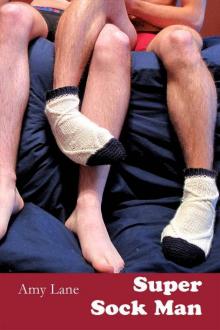 Super Sock Man
Super Sock Man Safe Heart (Dreamspun Desires Book 102)
Safe Heart (Dreamspun Desires Book 102) Slow Pitch
Slow Pitch School of Fish
School of Fish Shades of Henry (The Flophouse Book 1)
Shades of Henry (The Flophouse Book 1) Ethan in Gold
Ethan in Gold Hidden Heart
Hidden Heart Familiar Demon
Familiar Demon Shortbread and Shadows
Shortbread and Shadows Silent Heart
Silent Heart Shortbread and Shadows (Dreamspun Beyond Book 41)
Shortbread and Shadows (Dreamspun Beyond Book 41) All the Rules of Heaven
All the Rules of Heaven Shades of Henry
Shades of Henry Homebird
Homebird Under the Rushes
Under the Rushes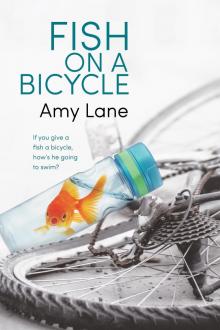 Fish on a Bicycle
Fish on a Bicycle Warm Heart
Warm Heart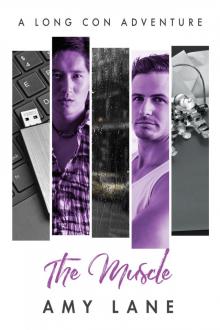 The Muscle
The Muscle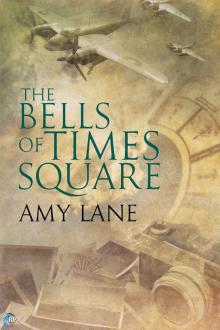 The Bells of Times Square
The Bells of Times Square![Jack&Teague [& Katy] stories 1-5 Read online](http://i1.bookreadfree.com/i/03/19/jackandteague_and_katy_stories_1-5_preview.jpg) Jack&Teague [& Katy] stories 1-5
Jack&Teague [& Katy] stories 1-5 Wounded, Volume 1
Wounded, Volume 1 Paint It Black
Paint It Black The Virgin Manny
The Virgin Manny Fall through Spring
Fall through Spring Clear Water
Clear Water If I Must Lane
If I Must Lane Stand by Your Manny
Stand by Your Manny Hiding the Moon
Hiding the Moon Freckles
Freckles Chase in Shadow
Chase in Shadow Sidecar
Sidecar Quickening, Volume 1
Quickening, Volume 1 Black John
Black John Bobby Green
Bobby Green Winter Ball
Winter Ball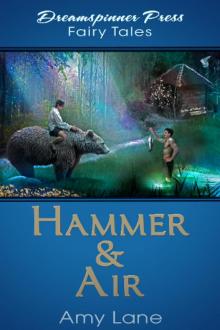 Hammer & Air
Hammer & Air A Few Good Fish
A Few Good Fish Dex in Blue
Dex in Blue Quickening, Volume 2
Quickening, Volume 2 A Fool and His Manny
A Fool and His Manny Manny Get Your Guy (Dreamspun Desires Book 37)
Manny Get Your Guy (Dreamspun Desires Book 37) Familiar Angel
Familiar Angel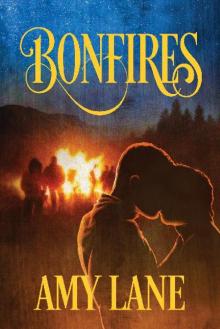 Bonfires
Bonfires The Locker Room
The Locker Room Rampant, Volume 2
Rampant, Volume 2 Left on St. Truth-Be-Well
Left on St. Truth-Be-Well A Solid Core of Alpha
A Solid Core of Alpha Red Fish, Dead Fish
Red Fish, Dead Fish Summer Lessons
Summer Lessons Country Mouse
Country Mouse City Mouse
City Mouse Turkey in the Snow
Turkey in the Snow Rampant, Volume 1
Rampant, Volume 1 Bitter Moon Saga
Bitter Moon Saga Candy Man
Candy Man Crocus
Crocus Green's Hill Werewolves, Volume 2
Green's Hill Werewolves, Volume 2 The Green's Hill Novellas
The Green's Hill Novellas